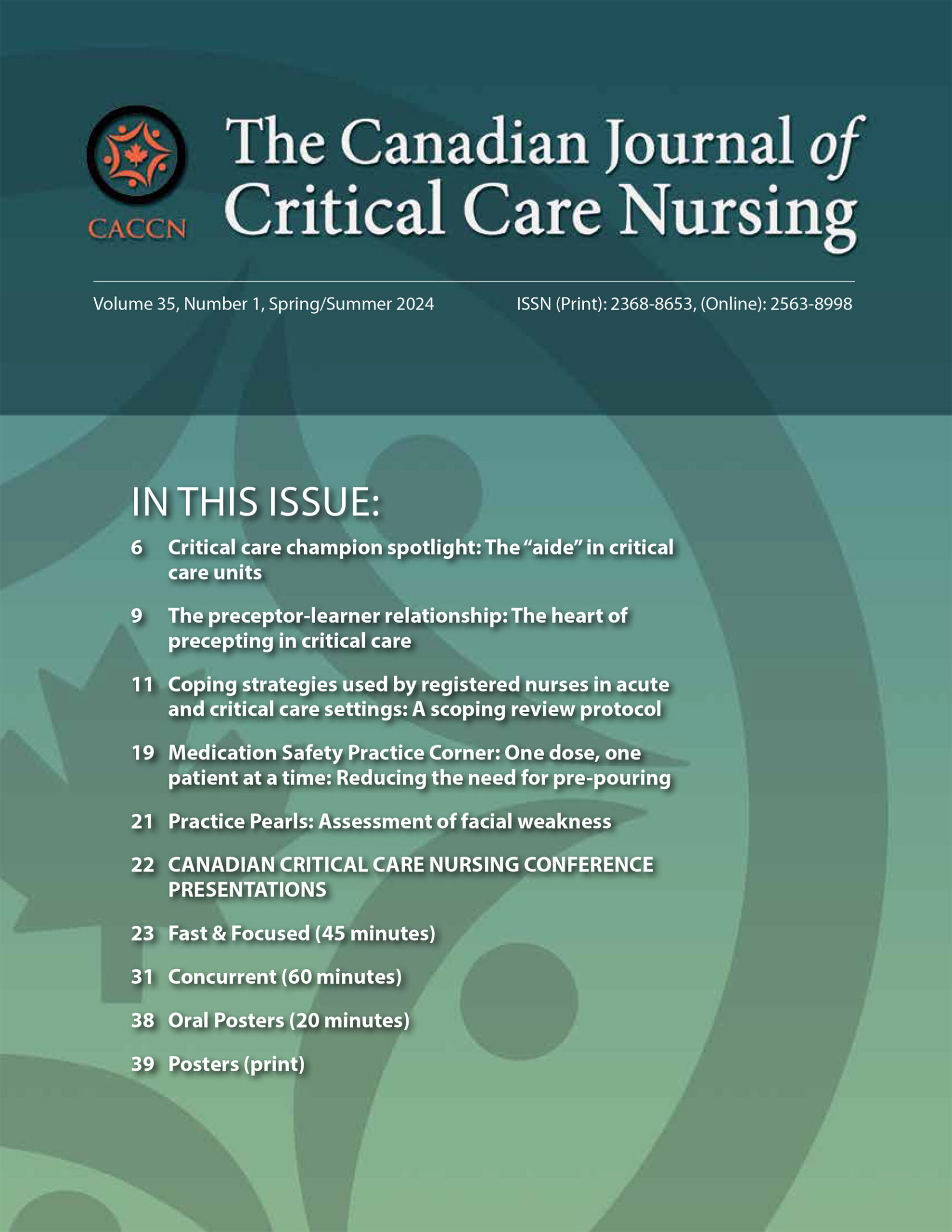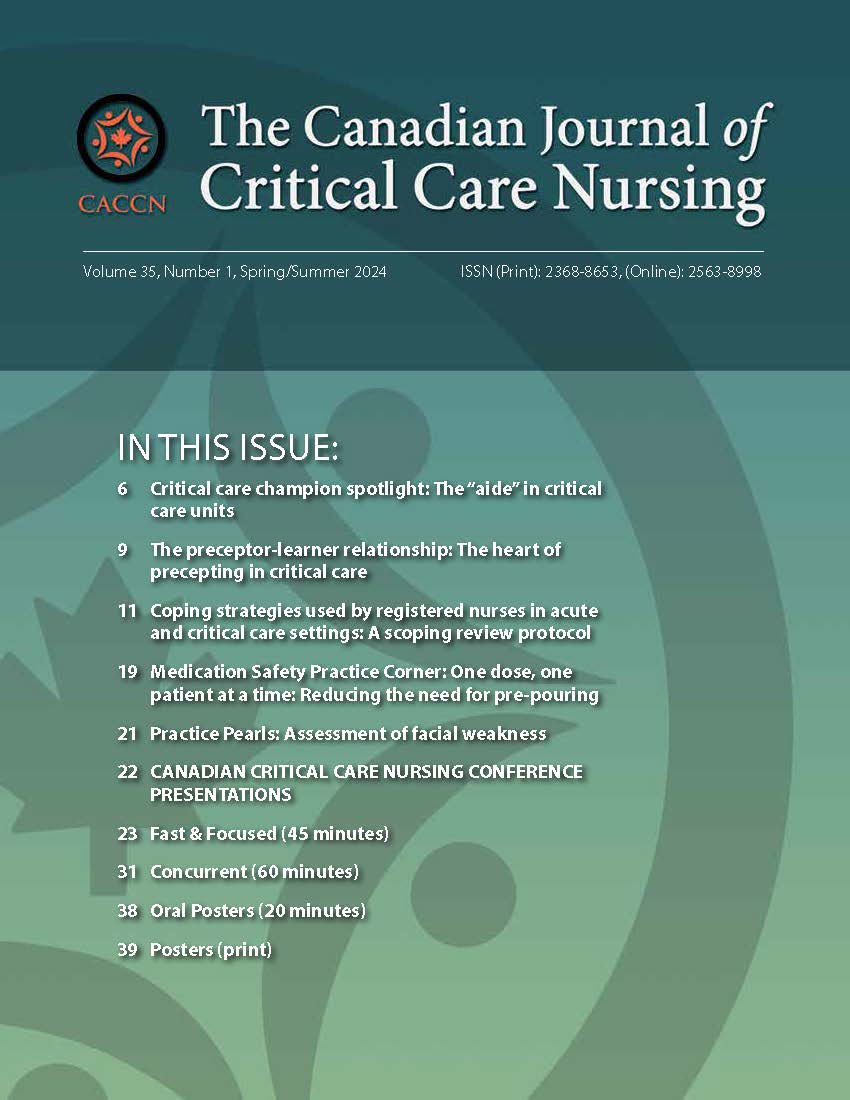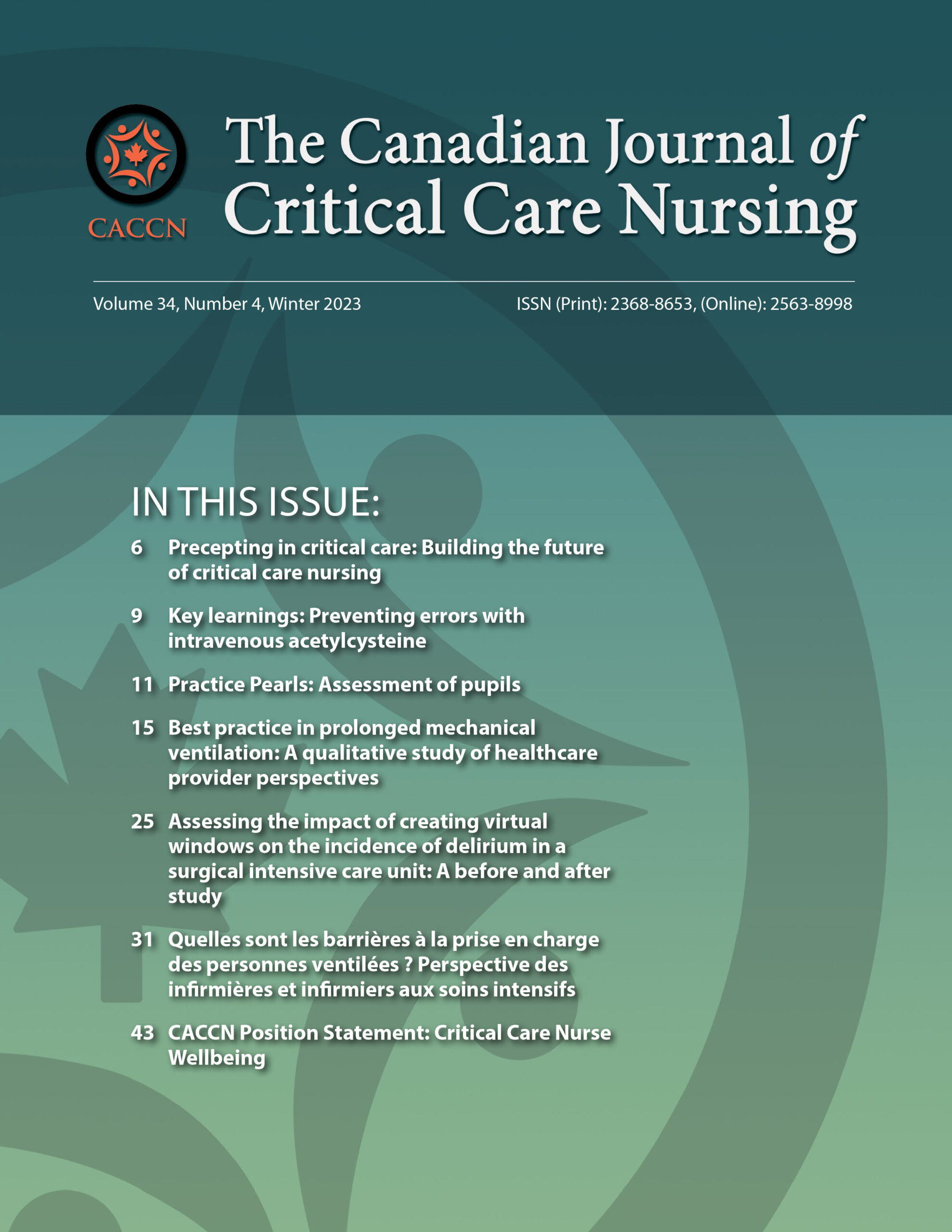A Feminist Perspective on Post-Pandemic Burnout in Critical Care Nurses
Leslie Brugger, BSFNH, BSN, RN
Historically, nursing has been a gendered profession. Still today, women dominate the nursing landscape. In 2019, the Canadian Nurses Association reported that 91% of Registered Nurses were female in Canada (Canadian Nurses Association, 2019, p.1). Given this strong female presence, it is disconcerting that nursing remains inequitable for women in 2023. Feminist theory explores the importance of women’s perspectives, social justice, and feminist values, providing the theoretical and philosophical groundwork for the progression of gender equality (Im & Meleis, 2001). 2021 was one of the most challenging years in critical care nursing history, with record amounts of women leaving the profession due to safety, burnout, workload, and compensation issues. Exploring some of these challenges through a feminist perspective that promotes women’s values and interests may offer a lens for understanding the needs of nurses in the post-pandemic healthcare setting (Burton, 2016).
I am saddened by the compromising climate of critical care nursing in Canada today, where working conditions have forced nurses to choose between their ethical and professional obligations. Nurses are leaving behind their pensions, job security and love for helping others in hopes of finding new employment where they are valued and supported. Critical care nurses working in areas such as intensive care and emergency departments that took the brunt of surging demands during the COVID-19 pandemic are resigning due to these unsustainable work environments. They have witnessed extraordinary suffering and have experienced severe staffing shortages. In addition to intensified pandemic-related stress, nurses in these front-facing areas concurrently experience an unacceptable amount of violence. Pich and Roche (2020) claim that nurses are “more likely to be attacked at work than prison guards and police officers” (p.522). The increased violence, workload, expectations, and responsibility should lead to immediate action to improve the working environment and monetary compensation. Yet nursing, particularly critical care nursing, is slow in realizing marked improvements.
Women in nursing are further disenfranchised in this profession when required to work extended hours and alternating shifts while caring for a family. Daycare services run for eight hours and are exceptionally unaffordable in Canada. Part-time and flexible schedules are notoriously difficult to obtain in nursing. How are nurses with small children expected to manage a full-time position with these limitations? Nursing as a gendered profession fails to create a family-friendly workplace. Statistics Canada (2021) has shown that the lack of support for nurses’ workplace needs, and the resulting magnified stress and burnout disproportionally affect female nurses compared to other healthcare workers.
I am proud that nurses have finally taken a stance against these unsafe work conditions. One of critical care nurses’ most outstanding skills is their ability to advocate for their patients. Post-pandemic, nurses now need policymakers and health authorities to advocate for them during this time of reflection and opportunity for progression. Women in nursing must see real change in gender equality, equity, workplace safety, and mental and physical health support to remain in these careers. Most importantly, nurses want to practice in an environment that allows them to confidently uphold the ethical obligations of their professional practice licensure.
Author notes
Leslie Brugger, BSFNH, BSN, RN, Critical Care RN, Vancouver Coastal Health; Family Nurse Practitioner Program, The University of Alberta.
Corresponding Author:
Leslie Brugger, BSFNH, BSN, RN, 411- 725 Marine Drive, North Vancouver BC Canada. V7M 0G2. Email: lbrugger@ualberta.ca
Funding and Conflict of Interest Statement
The authors has no funding and no conflict of interest to declare.
References
Burton, C. W. (2016). The Health Needs of Young Women: Applying a feminist philosophical lens to nursing science and practice. Advances in Nursing Science, 39(2), 108-118. PubMed. 10.1097/ANS.0000000000000119
Canadian Nurses Association. (2022). Nursing Statistics. CNA. Retrieved October 31, 2022, from https://www.cna-aiic.ca/en/nursing/regulated-nursing-in-canada/nursing-statistics
Im, E., & Meleis, A. (2001). An International Imperative for Gender-Sensitive Theories in Women’s Health. Journal of Nursing Scholarship, 33(4), 309-314. https://doi.org/10.1111/j.1547-5069.2001.00309.x
Pich, J., & Roche, M. (2020). Violence on the Job: The Experiences of Nurses and Midwives with Violence from Patients and Their Friends and Relatives. Healthcare, 8(4), 522. 10.3390/healthcare8040522
Statistics Canada. (2022). Experiences of Health Care Workers During the COVID-19 Pandemic. Statistics Canada. Retrieved January 9, 2023, from https://www150.statcan.gc.ca/n1/daily-quotidien/220603/dq220603a-eng.htm





